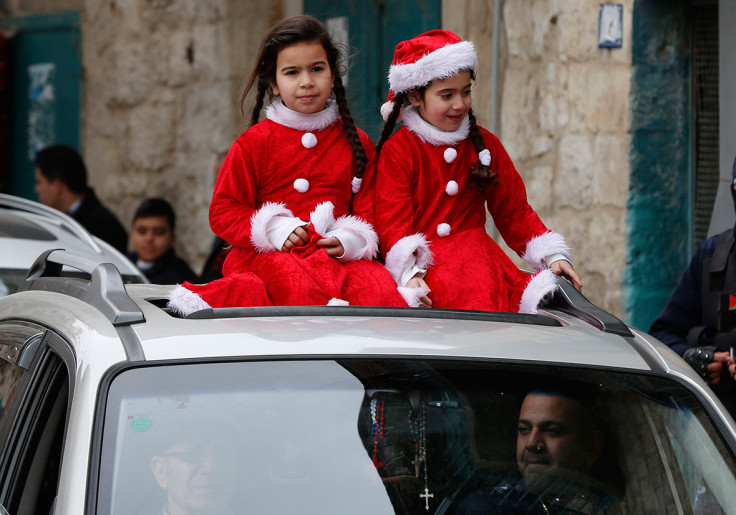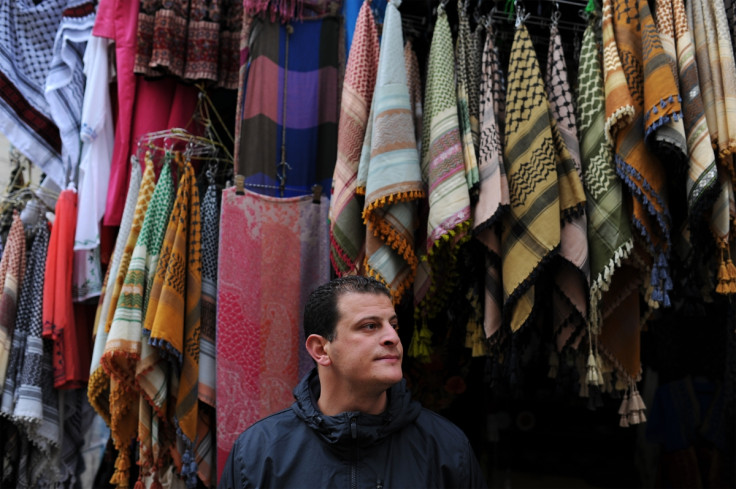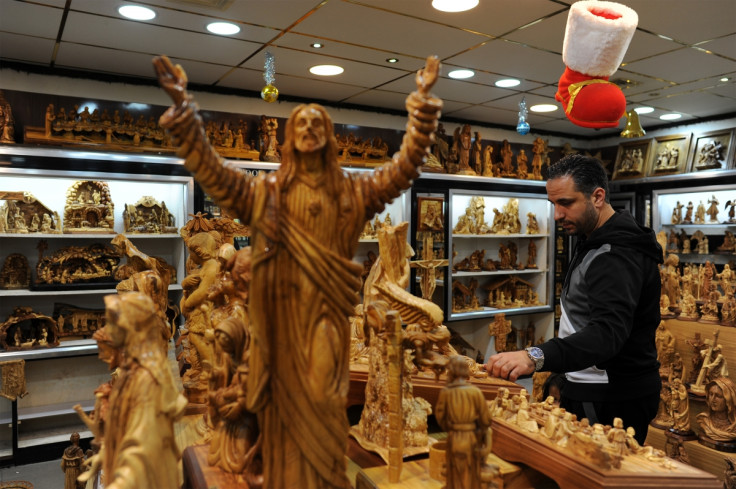Bethlehem: 'Christmas 2015 cancelled' as violence leaves Aladdin wishing for a miracle

Standing outside his souvenir shop on Star Street gripping a paper coffee cup, Aladdin spotted a group of foreign visitors. "Welcome to Bethlehem!" he called after the Italians. "Welcome to my store! Scarves, olive wood, mother of pearl," he cajoled, waving a hand towards the colourful kefiyehs hanging overhead.
The tourists looked up and smiled but carried on past the store, headed for the attractions of Manger Square and the Church of the Nativity.
It is a typical interaction in Bethlehem's Old City but it has become a rarity in recent months here. An ongoing wave of violence in Jerusalem and the West Bank has reduced the flow of foreign visitors to Bethlehem to a drip. What's more, the slump has hit the city during the usually busy pre-Christmas season.
Bethlehem has traditionally been host to massive church services, markets and festivals during the festive period as Christians from across the world head to the city believed to be the site of Jesus's birth. The Church of the Nativity is built on the presumed site of the manger where Mary took refuge in Bethlehem and dozens of other churches mark other significant religious sites.
Israel's massive separation wall that divides the city from Jerusalem and requires tourists to pass a heavy militarised checkpoint has stemmed tourist visits over the past decade, but Bethlehem remains a travel hot spot and the city's economy is almost exclusively centred around tourism. As numbers have dwindled in recent years, Palestinians have felt the drop off acutely.
"It's almost Christmas, just a few days from Christmas, and it's empty," Aladdin says ruefully, surveying the thin crowd on Star Street. "We never had this situation before. Last year, it was busy here, really busy. A lot of people came to my store. I thought it was going to be like last year."
Like dozens of other merchants who own stores on the cobbled streets in the Old City, Aladdin offers a range of souvenirs made by local Palestinian producers and sells predominantly to tourists. He has had the space, just off Manger Square, for nine years.
"This year it's the worst," he told IBTimes UK. "In my life I've never seen this situation. Most of the money coming into Bethlehem is coming from tourists but look around, nobody is coming."
The slump in visitors began in October, when a wave of political violence spread from Jerusalem to the West Bank and Gaza.
Since then, 19 Israelis have been killed in stabbings, car rammings and shootings, including three soldiers and dozens injured. At least 117 Palestinians have been killed in the same period, with some 69 described as assailants by Israeli authorities. The rest were killed by Israeli forces at demonstrations or during army raids.

Bethlehem too has witnessed a number of deadly incidents, albeit far from the tourist hub of the Old City. Vera Baboun, the mayor of Bethlehem, said the instability had significantly affected tourism in the city. "There has been a decrease of 11% in the occupancy at the hotels, compared to last year," she told IBTimes UK. "This year we are expecting 40% occupancy at the hotels on the 24th, half foreign tourists and half Palestinians.
"When we talk about tourism we're talking about everybody's work, it's not just necessarily the hotel owner. For the hotel to work, we are talking about the people who sell the meat and vegetables, the workers. It's the same with the restaurants and the souvenir shops. It's a cycle and everybody is affected."
The Christmas tree lighting ceremony went ahead as planned and a brigade of scouts have paraded around the town as they do each year. But Maher Canawati, a Bethlehem councillor, said the municipality had decided to tone down the lighting and decoration across the city, while plans for music concerts in Manger Square had also been shelved.

"This year it's not going to be possible to do something like that. We have a lot of instability and there are a lot of martyrs," he said. "We are keeping festivals religious this year. We are not going to be doing other kinds of festivals that are not religious."
The municipality and the businesses are understandably eager to stress that Bethlehem is completely safe for tourists, noting pilgrims and foreigners have not been hurt in the ongoing violence.
Britain's Foreign and Commonwealth Office travel advice states the situation in the West Bank is tense and travellers should take care, while adding there had been no reports of serious incidents involving foreigners.
At one of the souvenir stores behind the Church of the Nativity, an Austrian tourist named Patrick was picking up a number of olive wood statues for his family.
"It's my second time here this week actually," he said. "I'm staying in Jerusalem but it's a special time of the year to visit Bethlehem. I'm a bit surprised there aren't many tourists here. I wasn't sure myself before I came but I made an investigation online and it appeared to be safe for tourists, so I came."
While the mood is festive enough in the centre of town, for many Palestinians living in the rest of the city and nearby refugee camps, the atmosphere is one of tension. Since October, protests against Israel's occupation have sparked frequent confrontations between Palestinian youths and the Israeli military at the checkpoints here, many of which have turned violent.
On 8 December, 19-year-old Malek Shalin was shot dead by Israeli forces when they raided the Dheisheh refugee camp, close to Bethlehem. The Israeli military said at the time that soldiers had been attacked when they entered the camp. Shalin was the fourth Palestinian from Bethlehem to be killed since October.
"Our Christmas this year is engulfed by the horrific situation on the ground," said Baboun, the mayor. "Nobody has the right to occupy our joy or our celebration but things on the ground are really tough, really difficult and we're struggling alone."
© Copyright IBTimes 2025. All rights reserved.






















